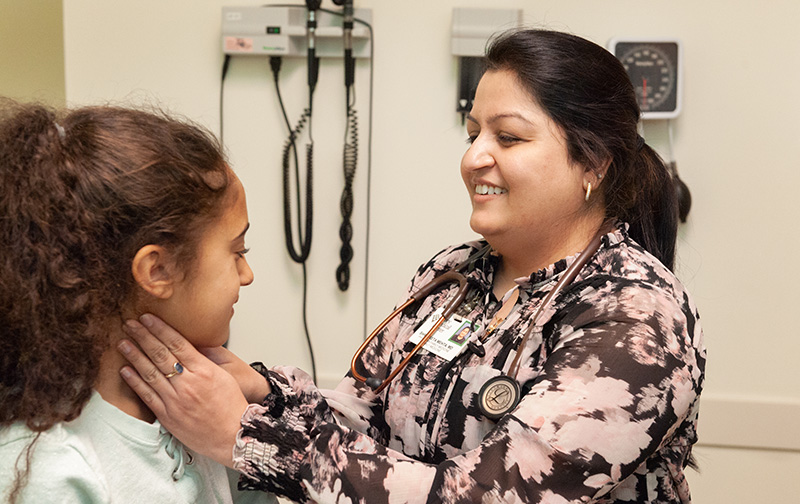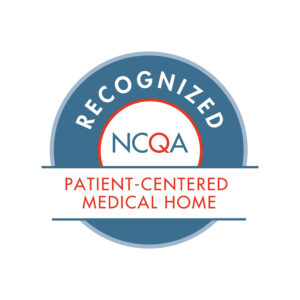
 Daily dedication to improving patient care
Daily dedication to improving patient care
“Our Clinic Network is so good that we not only follow procedures and best practices, we’ve developed them,” says Valley Medical Center Chief Quality Officer Kim Herner, MD. “I’m so appreciative of our Clinic Network team for all of their hard work and dedication in making care for our patients safer and more efficient year after year—they demonstrate daily what is so important and valuable in our Patient Centered Medical Home culture of improvement.” Here are three examples of how it’s working for our patients:
- Eighty years old, homeless and living in a hotel with her drug dependent son, she confided in her Valley primary care clinic provider during a visit. She wanted out of the situation but needed help. Within a week, the clinic health facilitator qualified the patient, found her a home at an assisted living facility and arranged her move-in. Now in her new home receiving regular medication and better nutrition, this patient’s health has improved significantly as she continues to receive clinic care.
- He couldn’t ignore it any longer. Despite a huge tumor on his back, he hadn’t been to a doctor for decades. Yet here he was, finally at a Valley primary care clinic. His provider scheduled him immediately with a surgeon. His RN care manager developed a care plan that included cancer treatment. The clinic caregivers continue to provide him consistent primary care years later.
- His health was failing and his lab work confirmed it. While meeting with his RN care manager at the clinic, he decided he was finally ready to accept hospice care. During that appointment, his physician was notified and provided immediate documentation for hospice services while the clinic health facilitator scheduled him for an in-home hospice visit that very evening.
Valley’s primary care clinics are in the top 5 percent nationally
The patient stories above exemplify the kind of wrap-around, collaborative care not unusual for Valley’s primary care clinics. Since 2015, they’ve each earned the highest recognition from the National Committee for Quality Assurance, the Patient Centered Medical Home. Their most recent achievement, the PCMH 2017 awarded in Dec. 2018, places them in the top five percent of all primary care clinics nationally. Only two other primary care organizations in Washington state were similarly recognized at that time. During the last year, Valley has opened two more primary care clinics and they are currently completing the rigorous NCQA requirements for PCMH 2018 recognition.
Meeting and exceeding national best practices through a team approach
In addition to caring for patients with complicated personal situations and medical conditions, Valley’s primary care clinics provide all patients with comprehensive preventive and medical care that meets or exceeds national best practices. Clinics include a care team consisting not only of primary care providers, but health facilitators, RN care managers, mental health professionals, and some with clinical pharmacists. PCMH is about building better relationships between the patients and their clinic care teams to improve quality, patient experience, staff satisfaction—while reducing healthcare costs.
What about patients with more typical medical conditions like diabetes?
Patients newly diagnosed with diabetes experience the collaborative clinic team work that goes into providing high-quality, cost-effective care. Meeting first with an RN care manager, patients learn the basics of managing their diabetes and are referred to Diabetes Education classes for more thorough instruction. Within a few weeks, they meet with a clinical pharmacist to help them with blood sugar control through medication if needed. The RN care manager continues to check in and support patients over the next few months with the goal of helping them manage their own diabetes. Patients who are able to successfully manage their blood sugars live healthier lives and have decreased risk for more serious health conditions.
Improving our patients’ health through data tracking
Valley’s PCMH primary care clinics track cumulative patient health and preventive care data through our processes and electronic health records. This provides evidence-based data for the clinic network to continuously advance care and improve the health of clinic patient population. Year after year, Valley participates in continuous process improvement in areas such as care coordination, reducing costs, preventive care, behavioral health, chronic conditions and patient experience. That means we are always seeking to improve patient care. For example, data may show clinic patients over age 50 are overdue for their colon cancer screening. The clinic team focuses on making small changes to the colon cancer screening process, testing to see if the change works and building on those small improvements for the future.
The personal connections between patients and caregivers make the difference
While data may direct the direction of clinic improvements, it’s still about the personal connection between caregivers and their patients that make all the difference at Valley’s primary care clinics. For Jackie Shreve Swaner, a nurse for 36 years and an RN care manager at Covington Clinic South, derives great joy from helping her patients. “I love to connect, educate and support,” Jackie says. “That’s the reason I’m here.”

